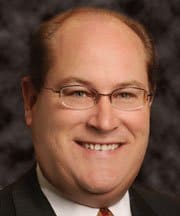Depreciation Recapture – How to Avoid the “Gotcha” Part of Selling Real Estate
By: Christopher Miller, MBA Specialized Wealth Management
When some real estate investors sell investment property, they are told that the capital gains tax rate is “only 15%.” The following year, during tax time, these investors get a rude awakening in the form of a huge unexpected tax bill. They find out that this “only 15%” isn’t all the taxes owed.
The first thing he missed – “It is Only 15% – Unless…”
The capital gains rate for most Americans is 15%. Those earning adjusted incomes over $464,850, however, will pay 20% Federal tax on their capital gains over that amount. Many investors are well below this income threshold; but don’t realize that their gain from the property sale can easily put them above that mark.
For example: Let’s say a married couple owns an apartment building worth $1 million. They bought it for $200,000 in the 1980’s, and it is fully depreciated. They do have a $500,000 loan because they took a loan against the property to buy a second property several years ago. Their annual income is $250,000. Our couple sells their apartment building for $1 million; pays off the $500,000 loan, and puts half a million dollars in the bank.
The following year, their accountant informs them that they owe $275,108 in taxes just from the sale of that property. “What?,” the couple says, “how did that happen? We only put $500,000 in the bank from that sale! How is that ‘only 15%?'”
The answer is that it’s certainly not “only 15%.” But why not? There are three parts to their answer:
Part One: “Only 15%” only applied to a minority of their capital gain. As I mentioned above, the Federal Government charges a 20% capital gains rate to taxpayers with adjusted income over $464,850. (That is the number for married couples. If you are single; that number is $413,200.) This applies to all income, however. If you earn $250,000 of annual income, and an $800,000 capital gain; that is $1,050,000 of income the way the IRS sees it. Of their $800,000 capital gain, the Feds will charge 15% on that first $214,850 ($464,850 limit – $250,000 current income), which equals $32,227.50. The rest of the capital gain, $585,150, ($800,000 – $214,850) is charged at 20%, which adds $117,030 to the bill. Thus, the total Federal capital gain tax is $149,258.
Part Two: Accumulated Depreciation – the “Gotcha” Tax. The second part of this couple’s tax bill came from their accumulated depreciation. Depreciation is a great deduction while we own rental real estate. We do, however, need to pay it back when we sell the property. (If we don’t do a 1031 exchange.) The Federal Government charges a 25% tax on depreciation recapture upon a property’s sale. Let’s assume that 75% of their property was depreciable. If a property purchased for $200,000 is 75% depreciable, ($200,000 x 75% = $150,000, then X 25%) the tax due on this portion is $37,500.
Part Three: California State Taxes. The total tax bill so far is $186,758, but we’re not done yet. The state of California puts their own tax on all capital gains, and recapture that it’s residents earn. This rate is 9.3% – and at least it doesn’t potentially rise to 13.3% like the income tax rate does! So; the $800,000 capital gain plus the $150,000 accumulated depreciation will add ($800,000 + $150,000 = $950,000, then X 9.3%) $88,350 to the tax tab, for their grand total of $275,108.
I call the accumulated depreciation tax the “Gotcha tax” because it’s one of the most expensive taxes out there – it is paid on money that you saved in the past: not on money you have in your hand today. That is how our example taxpayers ended up paying 34% total tax on their capital gain, or 55% of the equity they pocketed. That certainly wasn’t “only 15%,” was it?
I Invest In Real Estate to Build Wealth for My Future. How Can I Avoid Losing So Much to Taxes?
There is, fortunately, a way to avoid paying these taxes and to keep all of your equity growth and income potential for the rest of your life. The 1031 Exchange makes this all possible. Accountants will remind you that a 1031 exchange only defers the taxes until you sell your replacement property – and they are right. Upon that next sale, however, one can execute another 1031 exchange to defer the taxes again. Many owners will repeat this process for the rest of their lives. When we investors finally die; the taxes all disappear. Our heirs receive a “stepped up basis:” They could sell everything the day after we die and pay zero tax. (Estate taxes are something different, but let’s assume you’ve planned accordingly for that, too.)
For years, I have described the 1031 exchange as a way to “kick the tax can forward” rather than paying up today. By using a “defer, defer, defer, and die” strategy, we can keep all of our equity potentially growing for us – and creating income for us – for life. When we die, the taxes die with us – leaving us to go to “taxpayer heaven.”
If those big tax numbers scare you – and I don’t think anyone isn’t scared of them – then a 1031 exchange could be just what you’re looking for. Call my office toll-free at (877) 313-1868, and I’d be happy to talk with you about it.
This does not constitute an offer to buy or sell any security. Investments in securities are not suitable for all investors. Investment in any security may involve a high degree of risk and investors should review all “Risk Factors” before investing. Investors should perform their own due diligence before considering any investment. Past performance and/or forward looking statements are never an assurance of future results. Securities offered through Sandlapper Securities, LLC. Headquarters: 800 E. North Street,2nd Floor, Greenville, SC 29601. Member FINRA/SIPC. Specialized Wealth Management is not affiliated with Sandlapper Securities, LLC. California Insurance License # 0I80282.

Christopher Miller














 Accessibility
Accessibility